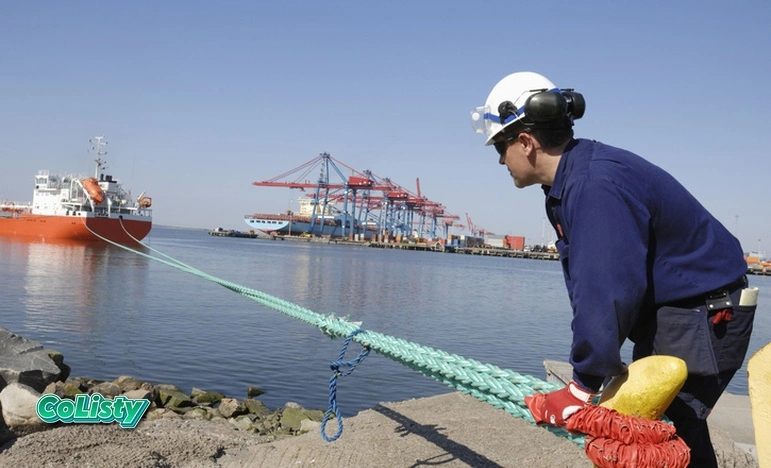Deckhand Job Role: Key Responsibilities & Career Path

Deckhand Job Role: Key Responsibilities & Career Path
Introduction to the Role
The Deckhand is a critical role within the maritime industry, responsible for a wide range of tasks that ensure the safe and efficient operation of ships and boats. Whether working on large cargo ships, cruise liners, or small vessels, deckhands play an essential part in maintaining the vessel, assisting with navigation, and providing support to the rest of the crew. They are often the first line of defense against operational issues, performing manual labor and working in challenging conditions at sea.
Deckhands contribute significantly to the safety and functionality of vessels by maintaining equipment, cleaning the deck, assisting with docking and undocking, and performing other crucial duties. Their work directly influences the smooth running of maritime operations, and they are integral to the success of the teams they work with.
For more information on maritime careers, you can check out resources like Maritime Jobs.
Job Details and Daily Activities
The work environment for a deckhand is dynamic and can vary depending on the type of vessel they are assigned to. Deckhands often work in a team under the supervision of a bosun or captain, and their daily tasks can involve:
-
Deck Maintenance: Keeping the deck clean and free from hazards, repairing equipment, and ensuring the ship’s appearance remains presentable.
-
Cargo Handling: Assisting in loading and unloading cargo, securing items on the deck, and helping with the handling of heavy equipment.
-
Navigational Support: Helping with mooring and unmooring, assisting with the operation of the ship’s navigation system, and keeping lookout.
-
Safety Duties: Responding to emergency situations, maintaining safety equipment, and ensuring safety protocols are followed at all times.
Deckhands work long hours and must be prepared for physical labor in various weather conditions. They are also expected to help maintain equipment and handle tasks in an efficient and timely manner. The work environment can be challenging, as deckhands often work in remote locations or aboard vessels for extended periods.
Required Education and Training
To become a deckhand, most employers require candidates to have at least a high school diploma or equivalent. However, specialized maritime training is crucial to standing out in the job market. Many deckhands start their careers by attending a maritime training academy or enrolling in programs that teach essential safety and navigation skills.
Key Qualifications:
-
Basic Safety Training (BST): This training includes fire-fighting, first aid, and survival at sea.
-
STCW Certification: The International Convention on Standards of Training, Certification, and Watchkeeping (STCW) is an essential requirement for deckhands to ensure safety and operational competence on board ships.
Training programs may vary by region, but many maritime schools offer comprehensive courses for aspiring deckhands.
For more on maritime training, visit US Coast Guard’s Merchant Mariner Credentialing.
Essential Skills and Competencies
Deckhands must possess both technical and soft skills to succeed in their roles. Here are the key skills needed:
Technical Skills:
-
Basic Maritime Knowledge: Understanding ship operations, navigation systems, and equipment handling.
-
Physical Stamina and Strength: Deckhands need to lift heavy items, work long hours, and endure challenging weather conditions.
-
Safety Knowledge: Proficiency in using safety equipment, managing emergency situations, and conducting safety drills.
Soft Skills:
-
Communication: Deckhands must communicate effectively with other crew members, especially when it comes to navigating and responding to emergencies.
-
Teamwork: Working in a collaborative and team-oriented environment is vital for the success of daily operations.
-
Problem-Solving: Deckhands must think quickly and address unexpected challenges, whether related to machinery or weather.
Globally Recognized Certifications and Courses
Deckhands can enhance their employability by earning additional certifications and completing relevant courses. Some of the most recognized certifications for deckhands include:
-
STCW Basic Safety Training: Offered by various maritime training centers around the world.
-
Maritime Safety Courses: These include advanced firefighting and survival techniques, often provided by organizations like the International Maritime Organization.
By pursuing certifications from reputable organizations, deckhands improve their chances of advancement in their careers and demonstrate a commitment to their profession.
Salary Insights
The salary of a deckhand varies significantly depending on experience, location, and the type of vessel they work on. However, on average, a deckhand can expect to earn anywhere from $30,000 to $55,000 annually in the United States. Entry-level deckhands typically earn less, while more experienced or specialized deckhands can earn upwards of $70,000.
The salary range can also be influenced by factors such as:
-
Type of Vessel: Working on luxury cruise ships or specialized oil tankers may offer higher pay.
-
Experience and Certifications: Experienced deckhands with advanced certifications often command higher salaries.
-
Region: Deckhands in high-demand maritime regions may receive higher pay rates.
For a more detailed salary breakdown, visit Glassdoor’s Deckhand Salary Information.
Regions in High Demand
The demand for deckhands varies across regions, but certain areas and industries show particularly high demand:
-
United States: The maritime industry in the U.S., especially along the East and West coasts, offers numerous opportunities.
-
Europe: With major maritime hubs in the UK, Norway, and Greece, there is consistent demand for deckhands across Europe.
-
Asia: Countries like China and Japan, with growing shipping industries, are increasingly in need of deckhands.
Emerging industries, such as renewable energy offshore wind farms, are creating new opportunities for deckhands in regions like the North Sea.
Major Companies Hiring in This Domain
Some of the largest employers of deckhands include:
-
Carnival Cruise Line: As one of the world’s largest cruise companies, they frequently hire deckhands to assist on their fleet of vessels.
-
Maersk Line: A major player in global shipping, often hiring deckhands for their container ships.
-
Royal Caribbean Cruises: Another global cruise line with frequent job openings for maritime professionals.
For more information on deckhand job openings, visit Carnival Careers or Royal Caribbean Careers.
Conclusion
The role of a deckhand is not only vital to the operation of vessels but also offers numerous career opportunities in the maritime industry. With the right training and certifications, deckhands can grow within the industry, taking on more specialized roles or even advancing to positions like bosun or ship captain.
For those interested in maritime careers, becoming a deckhand offers a challenging yet rewarding path with ample opportunities for growth. If you’re ready to start your journey, consider looking into certification programs or job openings in the field today.
-
Categories
Everything You Need to Know About Becoming an Actuary and Thriving in the Field
Published on Thursday, 23 January 2025 -
Categories
Everything You Need to Know About Becoming a Budget Analyst and Thriving in the Field
Published on Thursday, 23 January 2025 -
Categories
The Role of a Construction Project Manager: Responsibilities, Skills, and Opportunities
Published on Thursday, 23 January 2025 -
Categories
A Comprehensive Guide to Becoming a Successful Curriculum Developer
Published on Thursday, 23 January 2025




Share